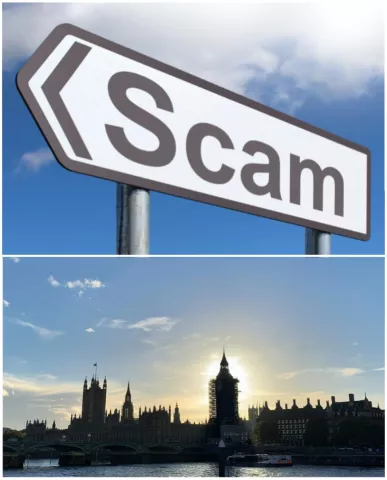Over the years, I've witnessed a concerning trend: friends and family falling victim to online scams. In the past month alone, I've seen three new cases, ranging from opportunistic hacks to complex scams that wreaked havoc on people's lives and finances. These incidents are a reminder that the problem is not only prevalent but also evolving in sophistication and scale.
My own experiences with online scams began with my father being targeted over a decade ago. Around the same time someone from my team discovered live banking details of those being scammed, only to be met with a lack of understanding and even criminalisation from the National Crime Agency due to lack of training. The situation has only worsened since then, with the digital divide playing a significant role in exacerbating the problem.
The divide between those with digital skills and those without has grown, and the pandemic has intensified the issue. Loneliness, made worse by COVID-19, has contributed to a rise in scams, with some victims even viewing them as expensive friendships. I had the opportunity to work with a startup from 2016 to 2018 that aimed to bridge this gap for those with health-related isolation. The World Health Organisation's declaration of loneliness as having the same impact as smoking 15 cigarettes a day highlights the severity of the issue.
Lacking social connection
can increase the risk
for premature death as
much as smoking up to
15 cigarettes a day.
Fortunately, those of us with digital know-how are somewhat protected from scams. Many of us also benefit from mandatory training on phishing and security within our organizations. However, this advantage is not shared by everyone, and the consequences can be devastating for those who fall victim to scams.
Having worked with the UK Parliament for many years I have a strong appreciation for Taiwan's pioneering efforts under its first Digital Minister in 2022.
Audrey Tang, offered a promising model for addressing this issue. Their e-participation initiatives are an inspiration, and it's possible that we need to go a step further by introducing a digital citizenship license. This would help reduce digital illiteracy, equip citizens with the necessary skills, and combat the growing threat of deep fakes and misinformation in social media spaces.
By implementing a digital citizenship license, we can empower individuals to navigate the digital world safely and responsibly, ultimately reducing the prevalence of online scams and protecting vulnerable members of our communities.
